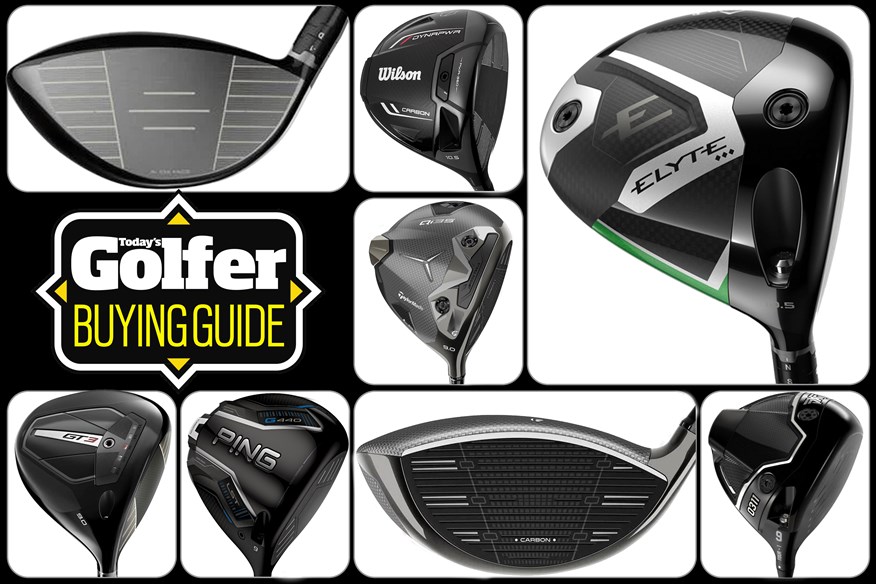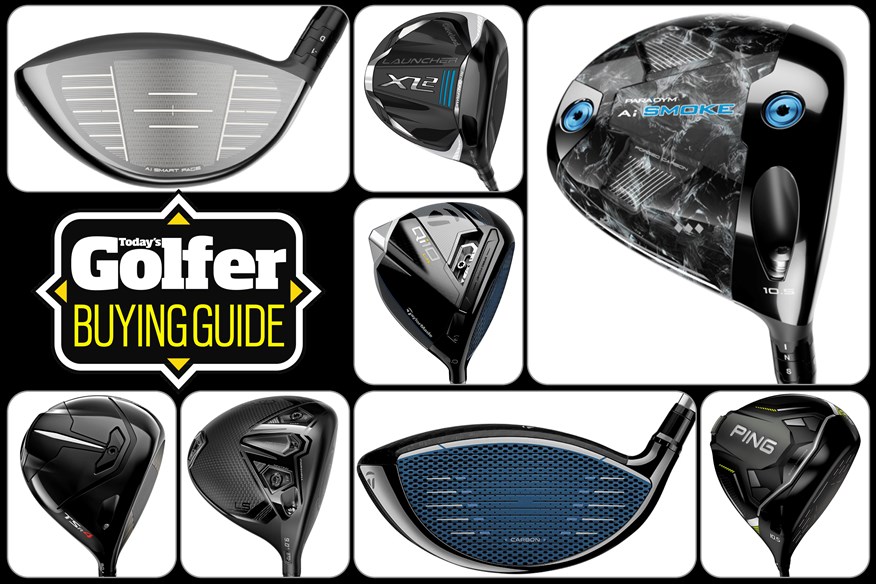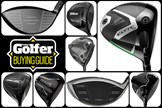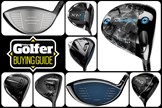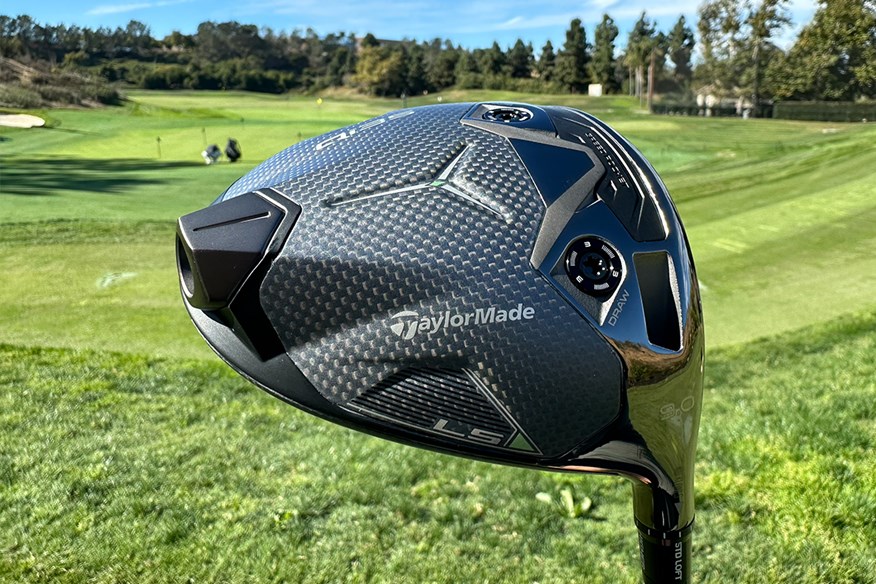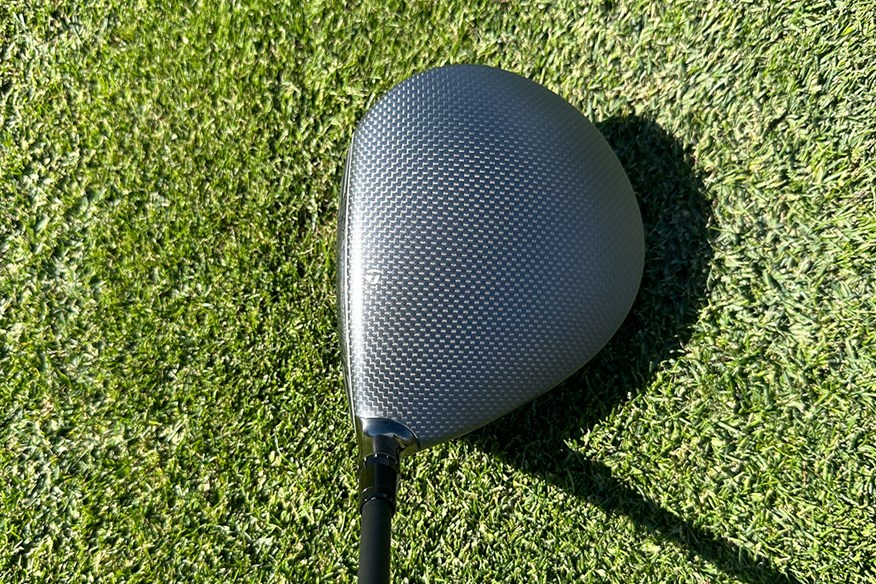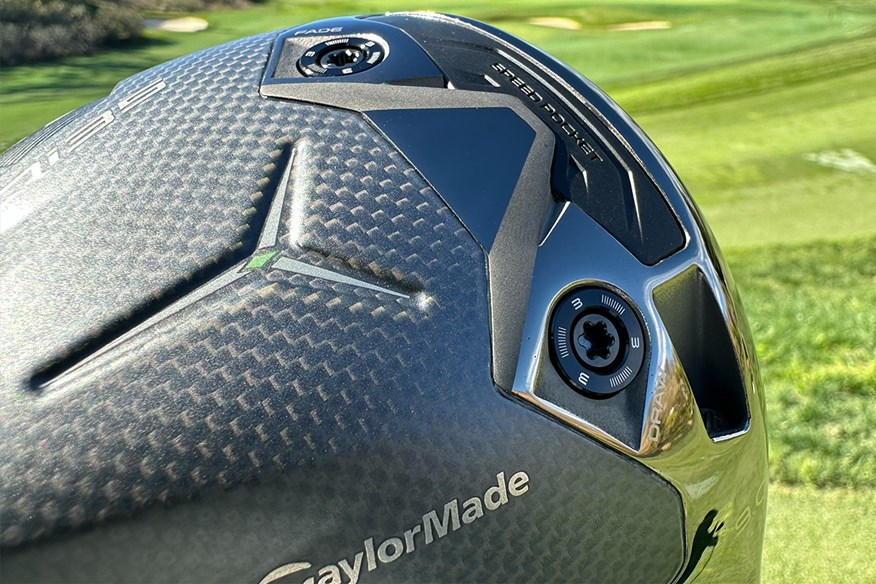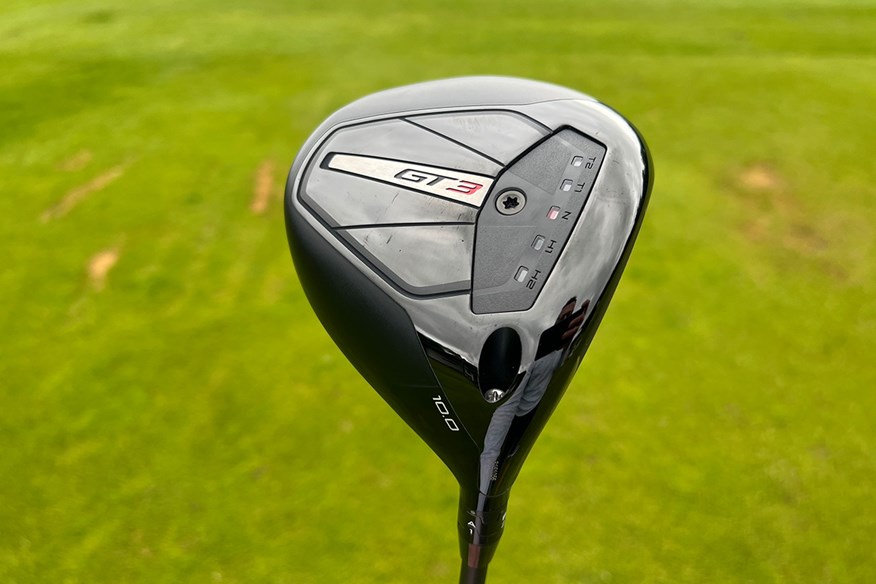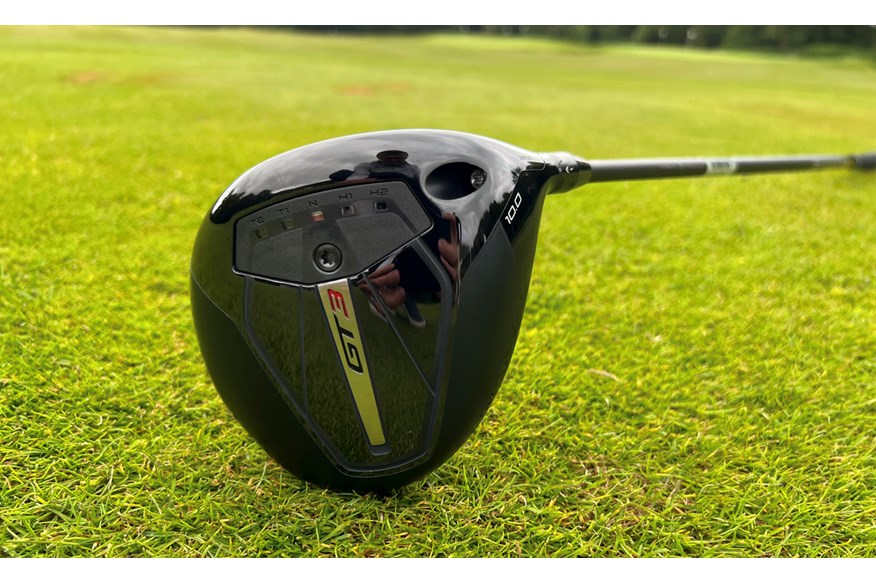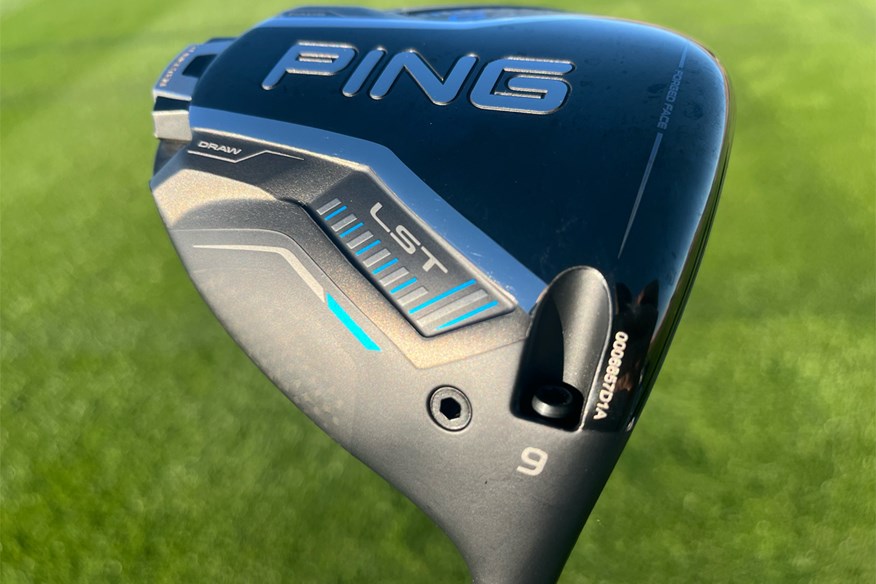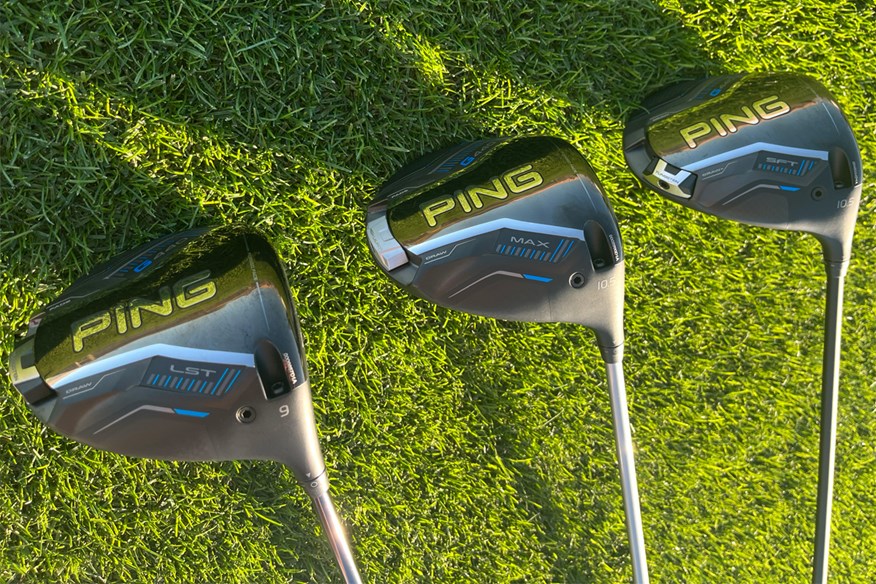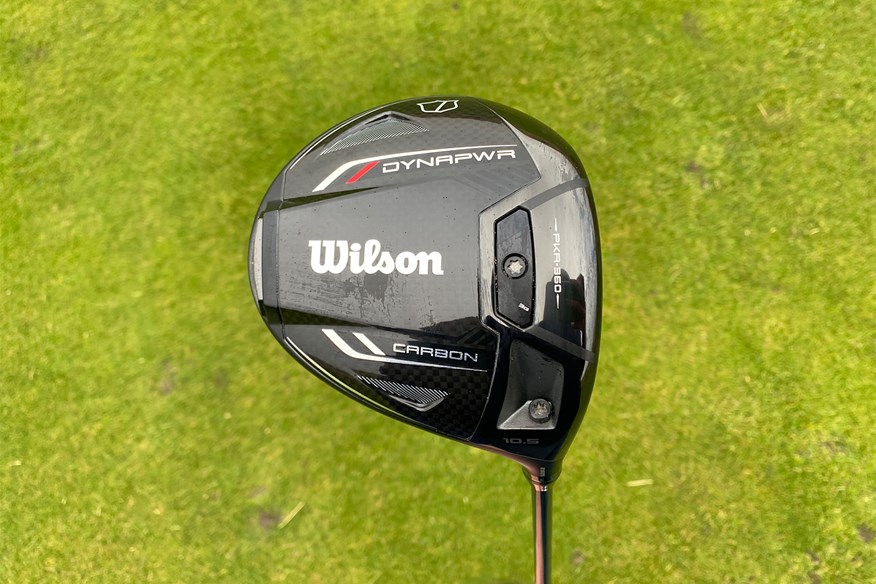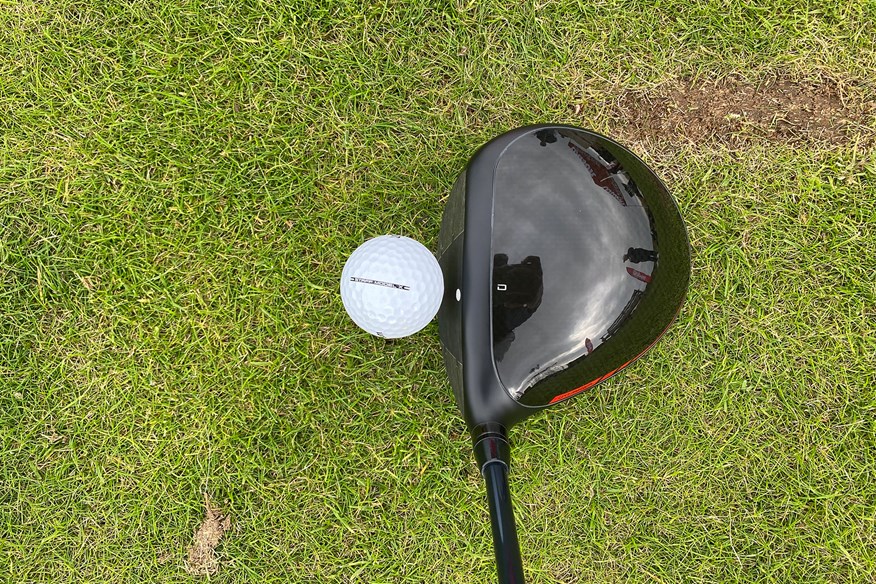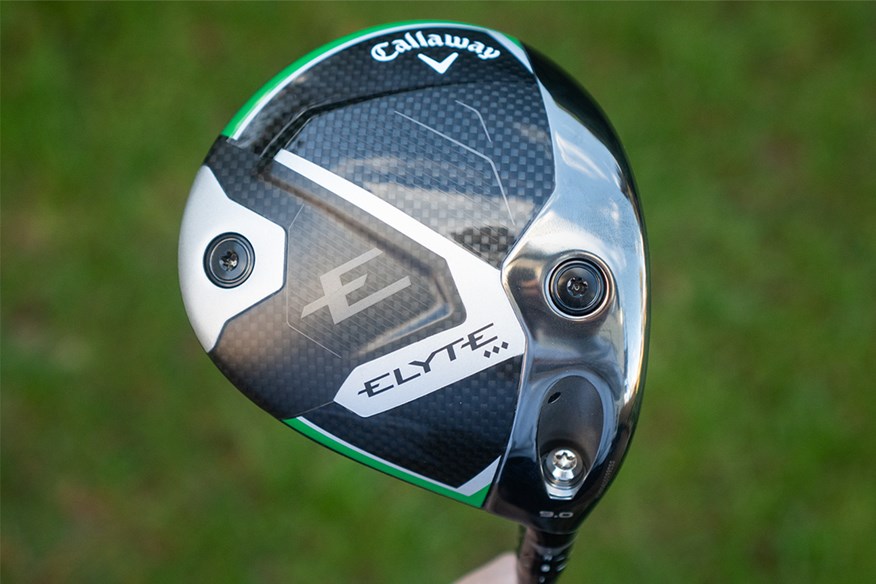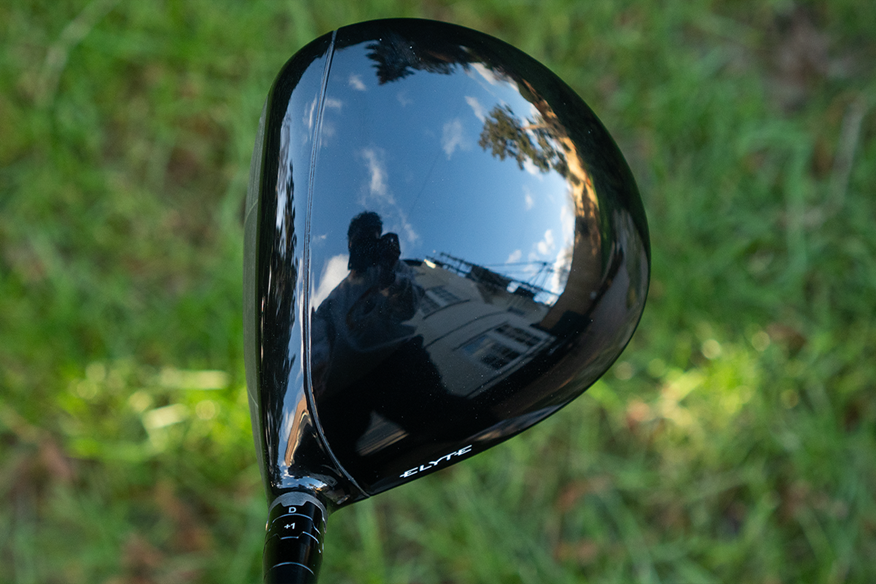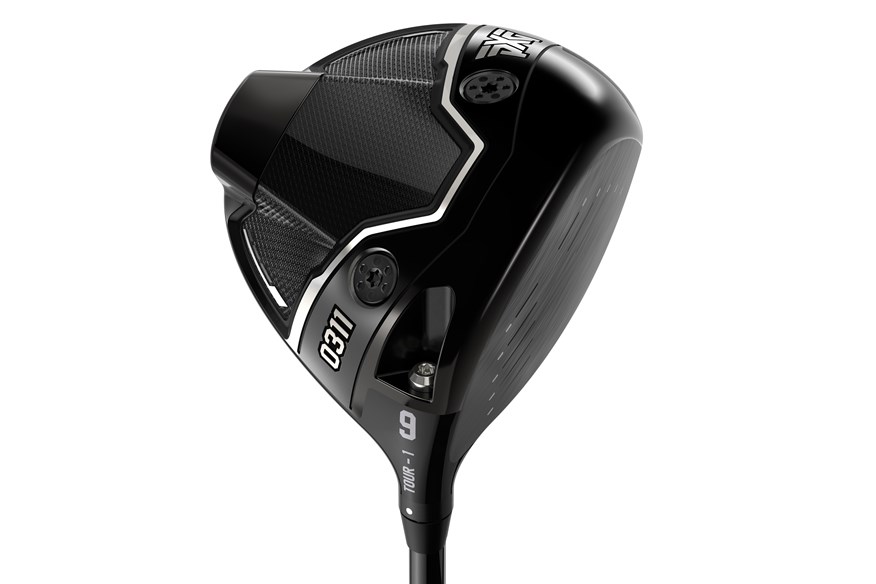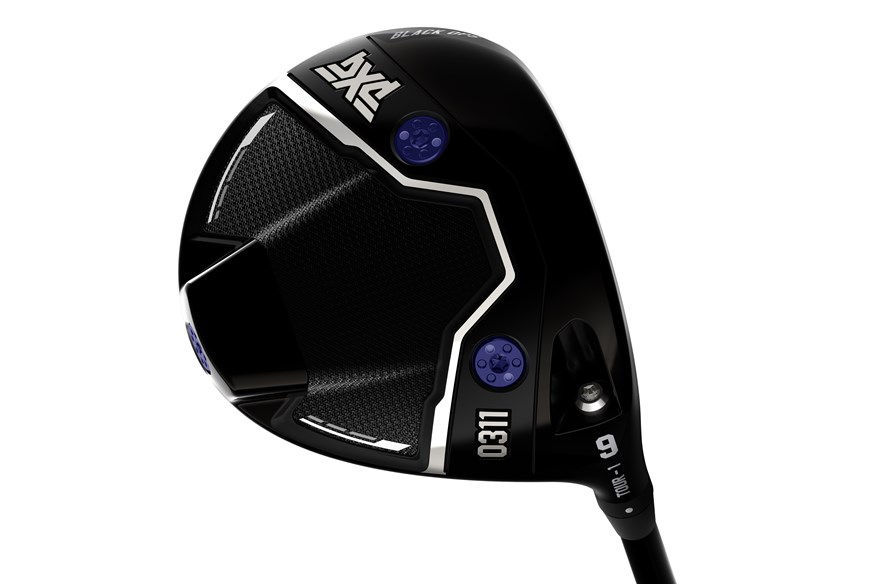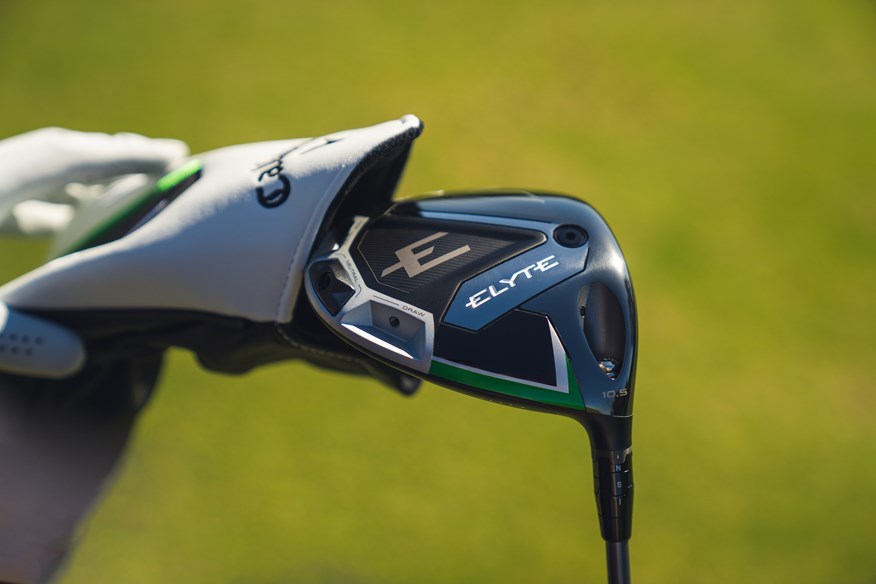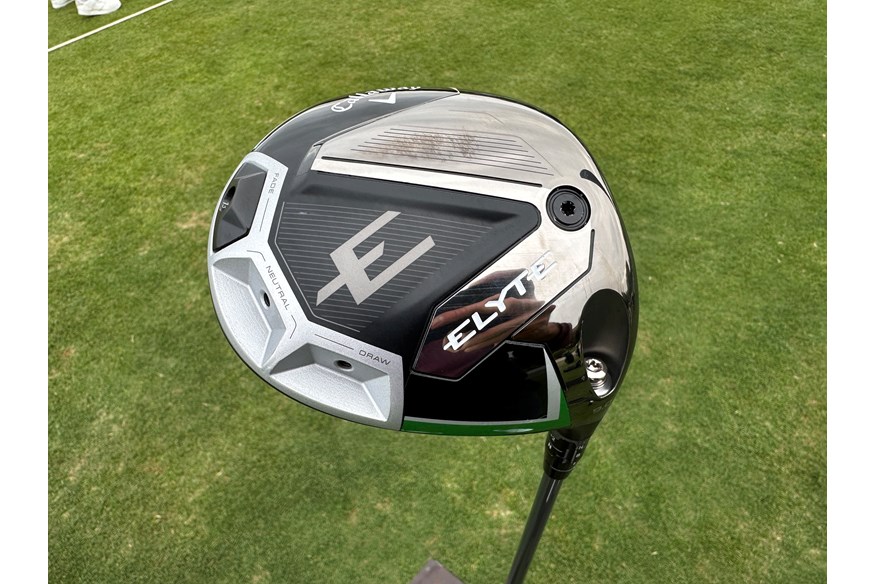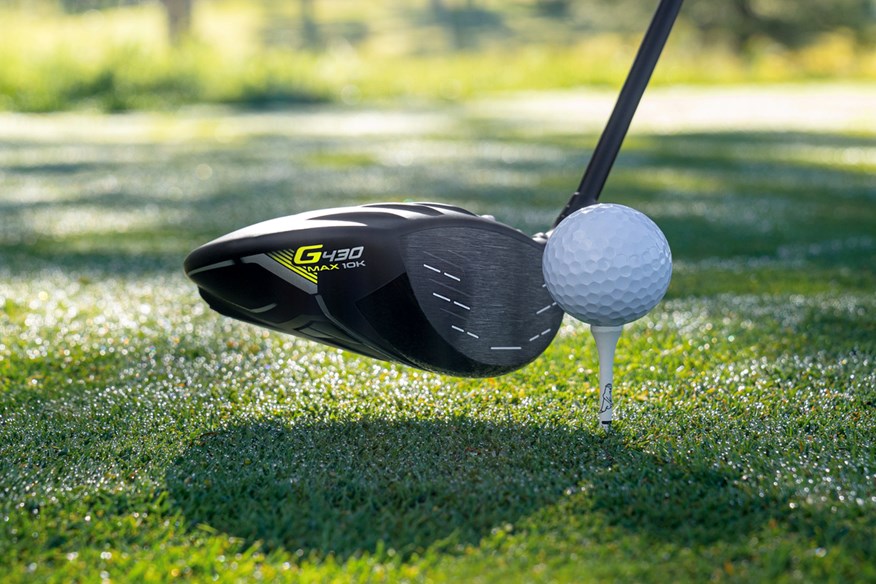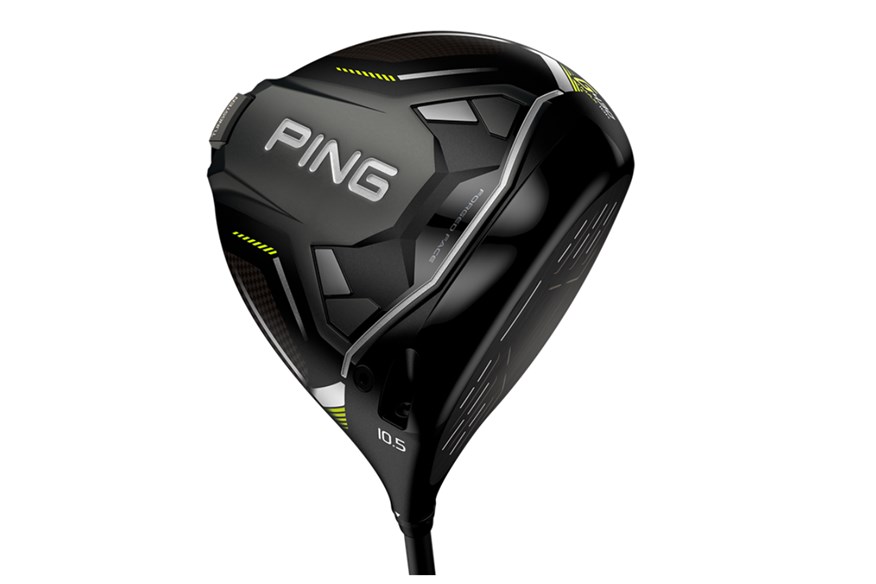Longest Golf Drivers 2025: Our Head-to-Head test reveals the best drivers to get you the most distance
Last updated:
Looking to maximize distance in 2025? Today’s Golfer crunches the numbers to reveal our shortlist of monsters for players looking to eke out every last yard.
Longest Golf Drivers – Jump To:
If you’re looking for the best golf driver to take your game to the next level we hope that you’re willing to entertain a few other factors than pure distance alone.
One of the biggest challenges associated with making a purchase of equipment today, especially buying a driver to add you some more distance to your game, is just simply the overwhelming choice. With every brand offering not only competing drivers but also multiple drivers within their latest product lines, it can be difficult to get to grips with every option.
Add this to the different explanations for how technology and the benefits therein, it’s always best to seek advice from a trusted source regarding where to begin and what might work out best for you. This could even be the case of replacing a driver model from 2024 that you’ve had custom fitted to your exact needs, and we’d still like to chase down further distance.
That said, we can’t blame you for wanting to extract every last yard from your physical exertions on the tee box. Strokes gained research highlights the importance of a strong performance off-the-tee if you’re to shoot lower scores and distance plays a big role in this, enabling you to play your approach with a more controlled club in hand. And who doesn’t get a psychological boost from bombing a drive 30 yards past your mates…
The longest drivers on the market are typically branded as low-spin (LS) by their manufacturers and are aimed predominantly at high-swing speed players who can consistently find the middle of the club face. This doesn’t mean that LS models are the only way forward for achieving more distance, however. Maximizing yardage depends on how well the launch characteristics of your driver marry up with your swing. It’s highly individualized, and many medium to slower-swing players may hit further with a more forgiving model that’s higher spinning and easier to launch.
While it was no surprise to see the majority of our Test Pro’s longest drives coming from 2025’s best low-spin drivers, Neil still produced extremely competitive carry distances with models that featured in our most forgiving drivers guide too. It goes to show how the latest technology is helping manufacturers offer highly appealing combinations of distance and forgiveness. For most club golfers, it’s worth asking if this added playability outweighs the odd yard or two up for grabs from perfectly struck low-spin models.
Best At A Glance
Best overall for distance: TaylorMade Qi35 LS driver | Buy Now
Best for ball speed: Titleist GT3 Driver | Buy Now
Best for distance with forgiveness: PING G440 LST | Buy Now
How to choose a driver for maximum distance
If distance is your sole aim for your next purchase, however, we suggest identifying a shortlist of low-spin power machines that fit within your budget and booking a custom fitting session to run the numbers. It’s the only sensible place to start if you want to ensure your setup is optimized to help extract every last yard. So many variables contribute to a successful drive, and blindly trusting the manufacturer’s promise that their latest offering is the longest of them all would be doing your game a disservice.
Only through analyzing launch characteristics such as ball speed and launch angle with a professional club fitter will you be able to objectively identify the club head and setup that will likely help you maximize distance. And just as importantly, if not more, is choosing the best driver shaft to complement the clubhead. The right driver shaft will offer you maximum distance and consistency, while also feeling good and giving you confidence. It’s not until you have all this data in front of you that you’ll find yourself in a position to make the most informed decision.
For more buying advice you can jump down to our buying guide and read through more key considerations before parting with your cash. To give you a headstart on potential options, let’s take a look at which models made our test pro’s longest leaderboard in 2025.
Longest Golf Drivers 2025:
The longest driver of 2025
If you do fit the bill and your game is based on consistent hitting at high speeds, It's hard to look past TaylorMade in 2025. We were pleasantly surprised with the L-R dispersion results too, as the usual stigma behind low-spin drivers is that the forgiveness will put a lot of amateur golfers off. That being said, this smaller profile, low spinning head won't be for everyone, and you may find yourself looking at the core TaylorMade Qi35 driver if you are looking for added forgiveness on mishits.
TG Test Pro Data (Front Weight):
Ball Speed 167.0 mph | Carry 298.0 yards | Spin (Total) 2,256 rpm | Launch Angle 13.0º | Height 38.2 yards | Descent Angle 40.3º | L-R Dispersion 23.3 yards
Read our full TaylorMade Qi35 LS Driver review.
Pros
- Low spin across the entire face with new CG projection.
- Premium adjustability
- Expect a good-looking, fast, and lovely-sounding driver.
Cons
- Won't suit every golfer
| Lofts | 8º (RH), 9° / 10.5° (RH/LH) |
| Stock shafts | Mitsubishi Kai’Li Blue DarkWave CB 60g / Mitsubishi Kai'Li White DarkWave 60g |
| Stock grip | Golf Pride Z-Grip Black/Silver |
High performance with premium fitting options
The adjustability by the SureFit hosel and MWT in the head means this low-spinning driver can be used by a variety of golfers, not just the high-swing speed players. The Titleist GT2 is an alternative option for us amateurs, but with our testing, we'd definitely recommend giving the Titleist GT3 a try if you're looking for speed in an all-around package.
TG Test Pro Data :
Ball Speed 165.7 mph | Carry 292.8 yards | Spin (Total) 2,378 rpm | Launch Angle 13.0º | Height 38.9 yards | Descent Angle 41.6º | L-R Dispersion 25.2 yards
Read our full Titleist GT3 Driver review.
Pros
- Stunning looks down at address, arguably the best on the market.
- A great option for high-speed players looking to control spin.
- Ball speed retention off-center hits is noticeably better than TSR3
Cons
- GT2 offers more forgiveness.
| Lofts | 8° / 9° / 10° / 11º (RH/LH) |
| Stock shafts | Project X Denali Red / Mitsubishi Tensei 1K Blue / Project X HZRDUS Black 5th Gen / Mitsubishi Tensei 1K Black<br> |
| Stock grip | Titleist Universal 360 Grip |
A low-spin driver that doesn't feel like a low-spin driver
On our spreadsheet the G440 LST was the 5th fastest in ball speed and carry, which is an improvement on 2024. The L-R dispersion was exceptional, coming in 2nd place to the Wilson Dynapower LS. This is a driver that can be used by any golfer in 2025, and with the G440 family itself offering an array of positive elements, we envisage this to be one of the most popular drivers by the end of the year.
TG Test Pro Data :
Ball Speed 164.7 mph | Carry 289.8 yards | Spin (Total) 2,502 rpm | Launch Angle 13.7º | Height 41.6 yards | Descent Angle 43.8º | L-R Dispersion 17.7 yards
Read our full PING G440 LST Driver review.
Pros
- Extremely impressive ball speed and spin across the entire face.
- So forgiving it almost doesn't feel like a low-spin driver.
- Increased speed to G430.
Cons
- Feel is slightly less premium than other drivers
| Lofts | 9º, 10.5º |
| Stock shafts | Ping Alta CB (counter-balanced) Blue 55 (SR, R, S); Ping Alta Quick 35/45 (HL build only) |
| Stock grip | Golf Pride 360 Tour Velvet |
The surprise performer of 2025
With the weight at the rear of the head, we saw 165.3mph ball speed and 284 yards carry, due to a mid-spin ball flight. We did move the weight to the front of the head but didn't notice significant performance improvements for it to be recommended. The L-R dispersion was 16.1 yards, beating any other driver in this test by some distance. If you want that unicorn driver that offers distance alongside forgiveness, Wilson is a great choice for 2025.
TG Test Pro Data:
Ball Speed 165.3 mph | Carry 284.8 yards | Spin (Total) 2,682 rpm | Launch Angle 11.7º | Height 37.4 yards | Descent Angle 42.3º | L-R Dispersion 16.1 yards
Read our full Wilson Dynapower Carbon Driver review.
Pros
- Stunning looks for head on aesthetics
- Incredible forgiveness, best of the testing
- These are good-looking, fast, and lovely-sounding drivers.
Cons
- Not the most exciting driver in this test.
| Lofts | <strong> </strong>8° / 9° / 10.5° / 10.5° Lite |
| Stock shafts | Fujikura Ventus TR Blue | (10.5° Lite) UST Helium NCT 4 Lightweight |
| Stock grip | Lamkin Crossline 360 Black |
A low-spinning weapon
We found that with the weight forward in the head, the Callaway Elyte Triple Diamond had the 2nd lowest spin, and 4th fastest ball speed. The L-R dispersion is what let this club down in pushing for that top spot, so we'd recommend you try the Triple Diamond and the Core elyte if you're set on Callaway for 2025. Callaway do have some variations of the Triple Diamond head on tour, so hopefully we see these released to retail soon.
TG Test Pro Data :
Ball Speed 165 mph | Carry 290.8 yards | Spin (Total) 2,202 rpm | Launch Angle 11.6º | Height 32.3 yards | Descent Angle 36.9º | L-R Dispersion 33.7 yards
Read our full Callaway Elyte Triple Diamond Driver review.
Pros
- Sleek, elegant looks down at address.
- Extremely low spin.
- Impressive spin consistency across the face.
Cons
- Not the most forgiving head so might not suit many average golfers.
| Lofts | 8º, 9º, 10.5º |
| Stock shafts | Aretera EC1 Blue, Mitsubishi Chemical Tensei 1k Black, True Temper Denali Charcoal |
| Stock grip | Golf Pride Tour Velvet 360 |
Low-spinning high performing head with breakthrough technology.
In our testing, we found the PXG offered a lot of adjustability for the everyday golfer. The numbers didn't blow us away, with 164.5 ball speed and 282 yards of carry being slightly above average for the testing session.
TG Test Pro Data (weight forward):
Ball Speed 164.5 mph | Carry 286.2 yards | Spin (Total) 2,204 rpm | Launch Angle 11.2º | Height 30.4 yards | Descent Angle 36.8º | L-R Dispersion 25.4 yards
Read our full PXG Black Ops Tour-1 Driver review.
Pros
- The Black Ops Tour-1 is PXG's most complete high-performance driver to date.
- The unique launch characteristics appear to help mishit performance.
Cons
- Not the most impressive data
| Lofts | 8° / 9° / 10.5° / 12° (LH: 9°) |
| Stock shafts | EvenFlow Riptide CB, PX Cypher, MCA Diamana S+, ProjectX HZRDUS Smoke Yellow, MCA Tensei AV Raw Blue, MCA Tensei AV Raw White, Aldila NVS Pink NXT |
| Stock grip | PXG Z5 Black |
An honourable mention to a machine for the amateur golfer
All data results were right at the top, and with adjustability to match with a movable weight tracking system in the back of the head, this driver can boast unparalleled speed for the amateur golfer if they are custom fitted. The new Ai10x face offers some impressive ball speed across the entire face, and we've seen great results from a variation of different swing speeds. The only element that lets this driver down is the overall aesthetics.
TG Test Pro Data (weight forward):
Ball Speed 165.3 mph | Carry 283.3 yards | Spin (Total) 2,692 rpm | Launch Angle 11.4º | Height 35.7 yards | Descent Angle 40.8º | L-R Dispersion 26.1 yards
Read our full Callaway Elyte Driver review.
Pros
- Fast and forgiving
- distance gains over previous models
- Confidence inspiring crown, premium sound
Cons
- Shelf appeal could be improved
| Lofts | <strong> </strong>8º, 9º, 10.5º |
| Stock shafts | Aretera EC1 Blue, Mitsubishi Chemical Tensei 1k Black, True Temper Denali Charcoal |
| Stock grip | Golf Pride Tour Velvet 360 |
Ping's G430 MAX 10K pushes driver forgiveness to the absolute limit.
For our test pro Neil Wain the 10K wasn’t quite his fastest or longest driver of 2025, as we’d expect of a super-forgiving driver. But, posting a carry distance just 4 yards back from the very longest (with a stock shaft), whilst being the most forgiving driver on the market (along with the TaylorMade Qi10 MAX) is a truly first-class performance. No matter what level you’re at, if you put a premium on finding the fairway and plan on buying a new driver in 2024, we'd say you’re doing your game a disservice if you don’t at least have this model on your shortlist to try.
TG Test Pro Data (9°):
Ball Speed: 163.1 mph | Backspin: 1993 rpm | Carry: 270 yds | Shot Area: 542.4 yds2
Read our full Ping G430 MAX 10K driver review.
Pros
- You'll struggle to find a more forgiving driver.
- Suited to a wide range of golfers.
- Ping's first proper mass-market carbon crown driver, fill your boots while you can.
Cons
- Some will complain about the louder sound, I say don't let it put you off.
| Lofts | 9° / 10.5° / 12° |
| Stock shafts | PING’s ALTA CB line, Tour 2.0 Chrome, Tour 2.0 Black. <br>Third-party: HRDUS Smoke Red RDX, Mitsubishi Kai’li White. |
| Stock grip | Golf Pride Tour Velvet. |
Longest Golf Drivers 2025: The Data
Below is the data from our independent testing of the longest drivers on test in 2025. You can read about all the other models in our golf club review pages.
| Manufacturer | Model | Loft (°) | Clubhead Speed (mph) | Ball Speed (mph) (+/- SD) | Carry Distance (yds) (+/- SD) | Spin Total (rpm) (+/- SD) | Launch Angle (°) | Height (yds) | Descent Angle (°) | L-R Dispersion (yds) |
| TaylorMade | Qi35 LS (Forward) | 10.5 | 119.1 | 167.0 (1.3) | 298.0 (8.1) | 2,256 (397) | 13.0 | 38.2 | 40.3 | 23.3 |
| Titleist | GT3 | 10.0 | 117.3 | 165.7 (1.0) | 292.8 (3.1) | 2,378 (186) | 13.0 | 38.9 | 41.6 | 25.2 |
| Titleist | GT4 (Forward) | 10.0 | 116.6 | 165.1 (1.3) | 292.4 (6.0) | 2,274 (363) | 12.9 | 37.1 | 39.9 | 33.3 |
| Callaway | Elyte Triple Diamond (Forward) | 10.5 | 116.5 | 165 (1.5) | 290.8 (6.7) | 2,202 (323) | 11.6 | 32.3 | 36.9 | 33.7 |
| Wilson | DynaPower Carbon (Forward) | 10.5 | 11.7 | 165.2 (2.6) | 289.9 (8.3) | 2,442 (478) | 12.8 | 38.1 | 42.0 | 44.3 |
| Ping | G440 LST | 10.5 | 115.6 | 164.7 (2.1) | 289.8 (5.4) | 2,502 (311) | 13.7 | 41.6 | 43.8 | 17.7 |
| Srixon | ZXi LS (Forward) | 10.5 | 117.6 | 164.4 (1.0) | 289.4 (4.4) | 2,365 (191) | 12.7 | 37.2 | 41.7 | 46.8 |
| Cobra | DarkSpeed- Adapt LS (Forward) | 10.5 | 117.9 | 164.4 (2.2) | 287.1 (6.4) | 2,504 (414) | 13.3 | 39.9 | 42.7 | 34.8 |
| Wilson Staff | DynaPower LS (Forward) | 10.5 | 114.6 | 162.2 (1.9) | 286.4 (4.7) | 2,228 (194) | 12.8 | 35.1 | 39.6 | 13.6 |
| PXG | Black Ops Tour (Rear) | 10.5 | 114.8 | 162.9 (2.5) | 286.4 (11.1) | 2,126 (594) | 12.6 | 33.1 | 38.4 | 45.6 |
| PXG | Black Ops Tour (Forward) | 10.5 | 112.5 | 164.5 (1.6) | 286.2 (5.2) | 2,204 (293) | 11.2 | 30.4 | 36.8 | 25.4 |
| Callaway | Elyte Triple Diamond (Rear) | 10.5 | 116.1 | 164.2 (1.5) | 286.2 (6.3) | 2,516 (310) | 12.8 | 38.3 | 41.7 | 25.7 |
| TaylorMade | Qi35 LS (Rear) | 10.5 | 117.4 | 165.6 (1.5) | 284.6 (6.8) | 2,715 (466) | 11.9 | 37.6 | 42.0 | 39.0 |
| Cobra | DarkSpeed- Adapt LS (Rear) | 10.5 | 117.4 | 165.2 (2.2) | 284.2 (3.9) | 2,778 (142) | 12.3 | 39.8 | 43.3 | 32.1 |
| Callaway | Elyte | 10.5 | 117.3 | 165.3 (0.6) | 283.3 (6.7) | 2,692 (443) | 11.4 | 35.7 | 40.7 | 26.1 |
| Srixon | ZXi LS (Rear) | 10.5 | 116.4 | 161.8 (2.5) | 282.6 (5.2) | 2,337 (172) | 11.8 | 33.3 | 39.4 | 33.0 |
| Wilson Staff | DynaPower LS (Rear) | 10.5 | 114.6 | 161.6 (1.3) | 282.1 (2.0) | 2,408 (229) | 12.9 | 36.8 | 41.4 | 15.9 |
| Titleist | GT4 (Rear) | 10.0 | 117.2 | 163.1 (2.0) | 277.7 (13.2) | 2,876 (558) | 12.8 | 39.7 | 43.5 | 50.9 |
*All lofts at 10.5° unless otherwise stated.
How we tested the drivers
We asked the leading brands to send us their 2024 drivers in our Test Pro Neil Wain’s specs.
We created an indoor test lab at Keele Golf Centre to ensure a controlled environment, which meant we could use premium TaylorMade TP5x golf balls and a Foresight GC Quad launch monitor to create the most reliable data possible. We rejected major misses but recorded how shots launched, span, peaked out, and how far they flew in which direction.
See more about how TG tests golf clubs and other equipment.
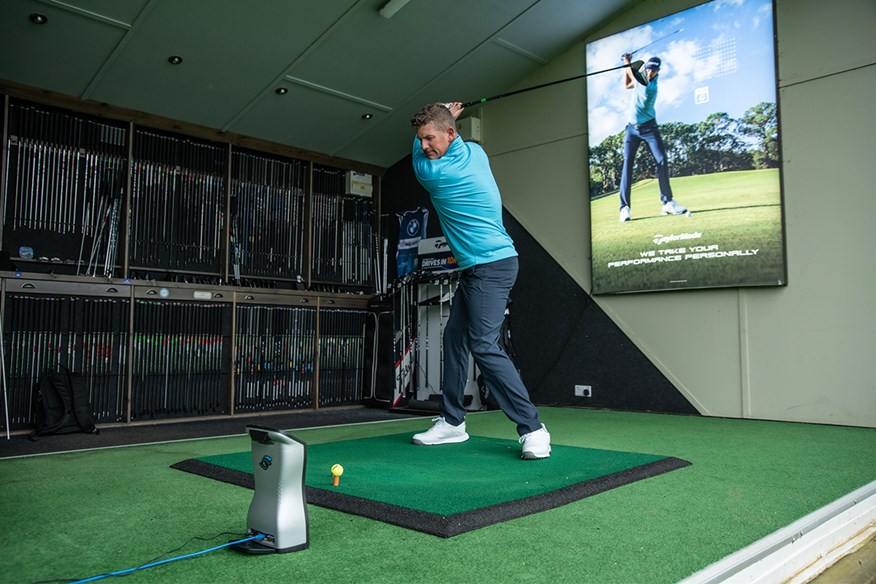
Longest Golf Drivers: Buying Guide
Upgrading your big stick is a decision worth taking some time over, not just because it’s a substantial investment, but second to your putter, it’s the club you reach to most and it therefore needs to warrant its place in your bag. Here are some key considerations when choosing a new driver to help you maximize distance off-the-tee.
Ball speed
Not surprisingly, ball speed is a key consideration here as this is what ultimately dictates your distance potential. The smaller footprints and aerodynamic designs of low-spin drivers permit higher swing speeds enabling increased energy transfer through the ball, leading to greater carry distances. Having a more aerodynamic design is one thing, but seeing it translate into more ball speed is what matters, which is why we always suggest collecting independent launch monitor data on the range or via a custom fitting session.
Spin rate
RPM stands for ‘revolutions per minute’ and is the measurement used to quantify rotational speed such as how much backspin has been applied to a golf ball immediately after impact. Unlike MOI, spin rate is not fixed and is highly individualized with every player delivering the club differently through the ball. As an example, our test pro didn’t always see a reduced spin or notably higher ball speeds when hitting the Callaway Elyte Triple Diamond model compared to the Callaway Elyte, this going to show why purely going off model names without running your numbers can be a mistake. The average spin rate for drivers on the PGA Tour is in the region of 2700 RPM.
MOI
It’s important to consider if a balance of distance and forgiveness will serve you better than an all-out monster in the distance department. Forgiveness is quantified using MOI (moment of inertia), measured in grams per centimeter squared, and defines how resistant the club face is to twist on impact. Low spin models are the least stable as weight is distributed forward in the clubhead to maximize energy transfer through impact. While you will not find low-spin models with MOIs as high as the forgiving counterparts, they are becoming increasingly competitive, with some models getting close to 8000 g/cm2.
Adjustability
Having the ability to tinker with loft and lie is something that can pay dividends for all levels of golfer when trying to dial in the optimal setup that will maximize distance potential. This adjustability, now commonplace in the latest driver releases, enables you to achieve launch angles and spin rates that best suit how you deliver the club through the ball. Further, drivers with interchangeable weight ports or sliding weight mechanisms are handy for customizing ball flights with a draw or fade bias, straightening up, or accentuating your natural shot shape.
Custom fitting
Dialing in your optimal set-up with a custom fitting session is important for all equipment, but imperative when considering buying a club that you will depend on so heavily across your round. A host of variables, including the driver shaft, contribute to optimizing a driver’s potential, and only through objective measurements on a launch monitor will you understand the setup that will enable you to produce the results you desire.
Confidence
You can’t necessarily put a number on it, but standing over the ball and feeling like you’re going to rip it straight down the middle time after time is massive. If there’s something that doesn’t look or feel right, be it weight distribution or an off-putting crown for example, then factor this into your decision as confidence is king when you’re standing on the first tee.
Budget
As with most things in the golf world, prices for drivers can vary considerably. Value for money is subjective; therefore, you should spend however much you feel comfortable with, be it a premium model or one with a more competitive price point. Powerhouse driver brands such as Ping, TaylorMade, and Callaway will typically be positioned at the top end of the market, however, there is excellent value to be found with other brands such as Cobra, Wilson, and PXG – and you might just find the best cost-per-yard performance where you least expect it.
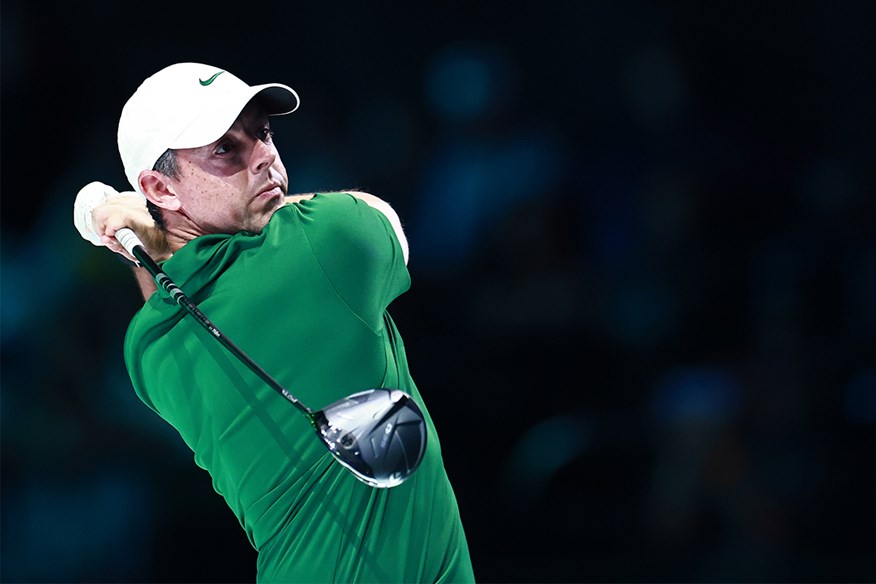
Longest Golf Drivers: FAQs
Which driver hits the furthest?
The longest driver for one golfer may not be the longest for another, so doing your own testing is always recommended. Today’s Golfer has found the TaylorMade Qi35 LS, Callaway Elyte Triple Diamond, Titleist GT3 and Titleist GT4 to be among the longest golf drivers when tested in the hands of a pro.
What does low spin on a driver do?
Low-spin drivers are designed for fast-swinging players who require the ball to penetrate through the air with moderate launch and optimal roll-out. It’s important to ensure you have sufficient ball speed if you are considering a low-spin driver, otherwise, the ball could drop prematurely, resulting in lower carry distances than your swing deserves.
Can a driver be too low spin?
Absolutely. Whilst players with very fast swings normally benefit from reducing spin rates to maximize distance, drives with too little spin tend to fall out of the sky sooner, thus reducing carry distance and total yardage. Depending on your swing speed and ball speed, there will be an ideal launch angle and spin rate that provides the maximum distance for you. This is why getting custom-fitted for a new driver is essential.
What is MOI?
MOI is a term used in physics to objectively describe how much resistance an object has to turn about its axis. It stands for ‘Moment of Inertia’ and is used by golf club manufacturers to measure the resistance a clubhead has to twist throughout impact. The higher the MOI, the more stable the club is deemed to be. Scores in the region of 10,000 g/cm2 provide the very highest levels of stability and are generally better suited to beginners and high-handicappers.
What driver does Rory McIlroy/Tiger Woods use?
Every day golfers like to use the same equipment as the tour pros, which is one of the main reasons manufacturers spend millions of pounds on equipment contracts to secure the game’s biggest names to play their brand. But it’s important to remember that what’s best for Rory McIlroy, Tiger Woods, or any other elite tour pro, may not necessarily be the best driver for you. Elite tour pros boast swing speeds of over 115mph, which not many club golfers can match.
